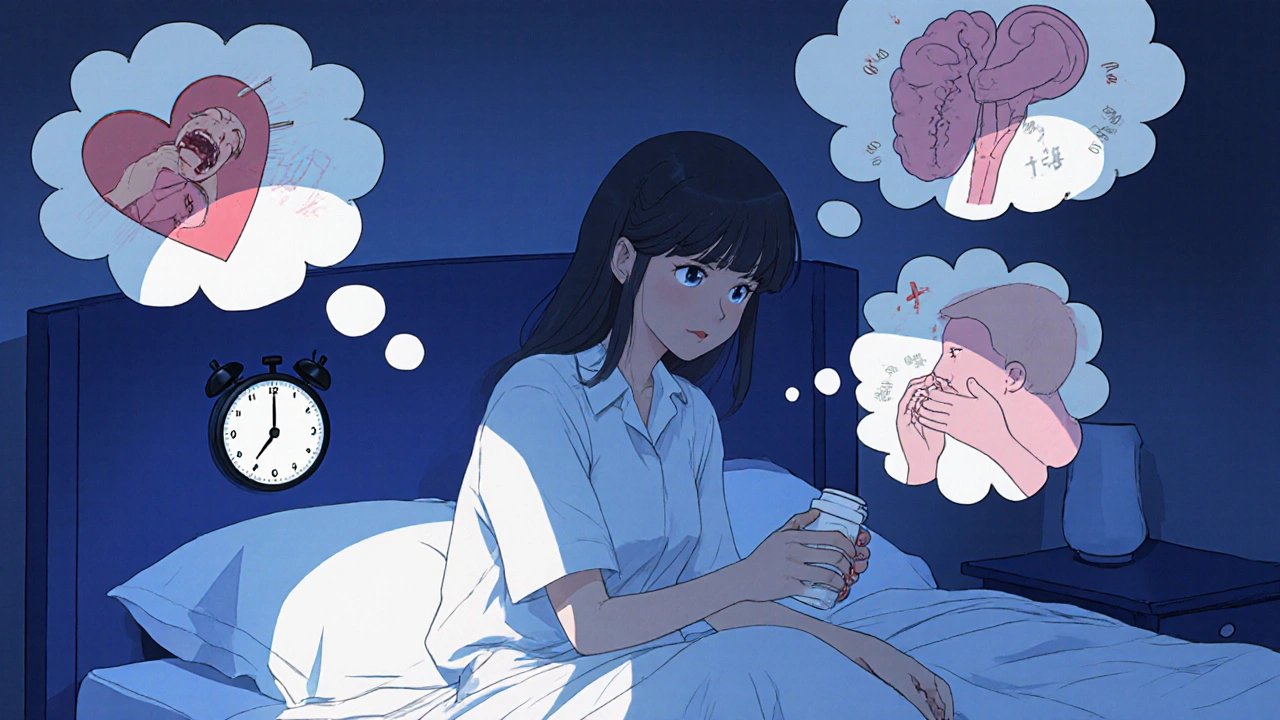Psychological Strategies for Meds: How Mindset Improves Medication Outcomes
When you take a pill for depression, high blood pressure, or chronic pain, your brain doesn’t just react to the chemistry—it reacts to your psychological strategies for meds, mental approaches that influence how effectively medications work in your body. Also known as medication adherence behaviors, these strategies shape whether a drug helps, hurts, or does nothing at all. It’s not just about swallowing the tablet. It’s about how you think about it, feel about it, and stick with it—even when you don’t feel better right away.
Take Trazodone, a sleep and depression medication often used off-label for insomnia. Studies show people who pair it with consistent sleep routines—like turning off screens an hour before bed or avoiding caffeine after 2 p.m.—sleep deeper and report fewer side effects. The drug doesn’t change. But their mindset does. Same goes for mindfulness for depression, a practice shown to reduce rumination and improve response to antidepressants. People who meditate regularly don’t just feel calmer—they metabolize meds more efficiently because their stress hormones drop. Your nervous system listens to your thoughts. If you believe the pill won’t work, it probably won’t. If you believe it’s part of a plan, it works better.
And it’s not just about mood drugs. People taking warfarin, a blood thinner that requires strict dosing and monitoring, who use daily checklists and track their INR levels with apps, have far fewer dangerous bleeding episodes than those who don’t. Why? Because they’ve built a habit, not just a routine. Same with finasteride, a hair loss and prostate medication that takes months to show results. Those who stick with it don’t just wait—they visualize progress, set small milestones, and celebrate tiny wins. That’s not magic. That’s psychology.
You don’t need to be a therapist to use these tools. Simple things like writing down why you take your meds, talking to someone who’s been on the same treatment, or even just setting a phone reminder with a positive message (“I’m protecting my joints today”) can boost results. The posts below show real examples: how yoga helps with panic disorder while on medication, how sleep hygiene makes trazodone work better, how understanding interactions between feverfew and blood thinners reduces risk. These aren’t just drug comparisons—they’re behavior guides. Because the best drug in the world fails if your mind isn’t on board.
What follows are real, practical stories from people who didn’t just take their meds—they changed how they thought about them. And it made all the difference.

Psychological Strategies to Manage Anxiety About Medication Side Effects
Learn proven psychological strategies to manage anxiety about medication side effects, reduce fear, and improve adherence. Discover how CBT, mindfulness, and symptom tracking can help you stick with your treatment.
